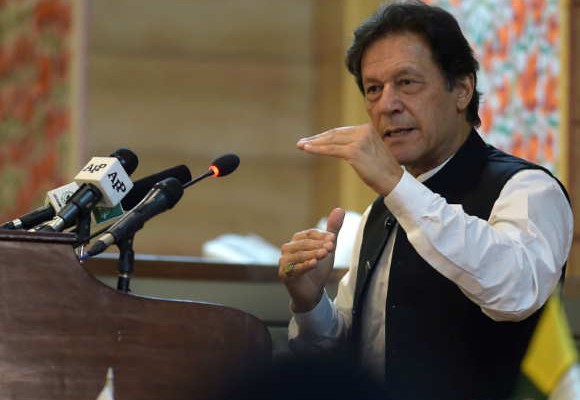Pakistan: the US gets its revenge

The ‘democratic’ coup against Imran Khan won’t be the end of his struggle
The US managed to topple Pakistani Prime Minister Imran Khan in an American ‘democratic’ way through a narrowly lost confidence vote in parliament. This was achieved by creating a split in his party and buying off some its MPs while backing the opposition bloc led by Shahbaz Sharif, brother of the country’s most corrupt politician Nawaz Sharif, who was convicted of graft and money-laundering but released on health grounds.
Khan’s sins in the eyes of the US and President Biden — who never once called him since taking office — are manifold: combating corruption; backing the Taliban resistance against the US occupation of Afghanistan; strengthening relations with China; refusing to condemn the Russian invasion of Ukraine; resisting enormous pressure to normalise relations with Israel; improving ties with Iran and its allies; refusing to send troops to Yemen under the banner of the Saudi-UAE coalition; and vocally supporting the Palestinian cause.
Khan’s Movement for Justice (PHT) campaigned for wholesale change enabling it to win the 2018 elections and form a coalition. He was bound to court trouble with the US by taking on Pakistan’s corrupt political elites that it has relied on for decades to exercise control over the country.
He never denied having the support of the military when he assumed office and early on in his term, but that was soon withdrawn after he fell out with some of the generals and refused to allow US bases to be established in Pakistan.
Khan’s critics focus on the rise of inflation to 12% (it’s 62% in Turkey), the decline in economic growth to zero over the past three years, and the fall in the value of the rupee. They conveniently fail to mention the impact of the COVID crisis which hit the whole world and affected the economics of all countries. In fact, his policy of partial closure was widely deemed a success that prevented people from starving while keeping the death rate from the pandemic relatively low (around 30,000 in a population of more than 220 million).
Washington’s war on Imran Khan began under the Trump administration when he refused to deploy Pakistan’s military and security capabilities against the Taliban to save the US/NATO occupation of Afghanistan from defeat. The first act of revenge was to cut Pakistan off from almost $3bn in US aid. The second was to encourage separatist groups and support their armed actions — notably the Baluch movement and the Pashtun Pakistani Taliban — while activating the local branch of Islamic State.
The US conspiracy to wreck Pakistan and spread bloody mayhem will ultimately fail, as a broad section of Pakistanis will confront and resist it under the leadership of the popular and charismatic Khan — that is if no scheme is hatched to get him eliminated like former prime minister Zulfikar Ali Bhutto, who was executed after Gen. Zia ul-Haq’s 1977 military coup. They know the choices he made, including aligning with the China/Russia camp, were in the best interests of Pakistan and its people.
https://www.raialyoum.com/pakistan-the-us-gets-its-revenge/
 TheAltWorld
TheAltWorld 
0 thoughts on “Pakistan: the US gets its revenge”